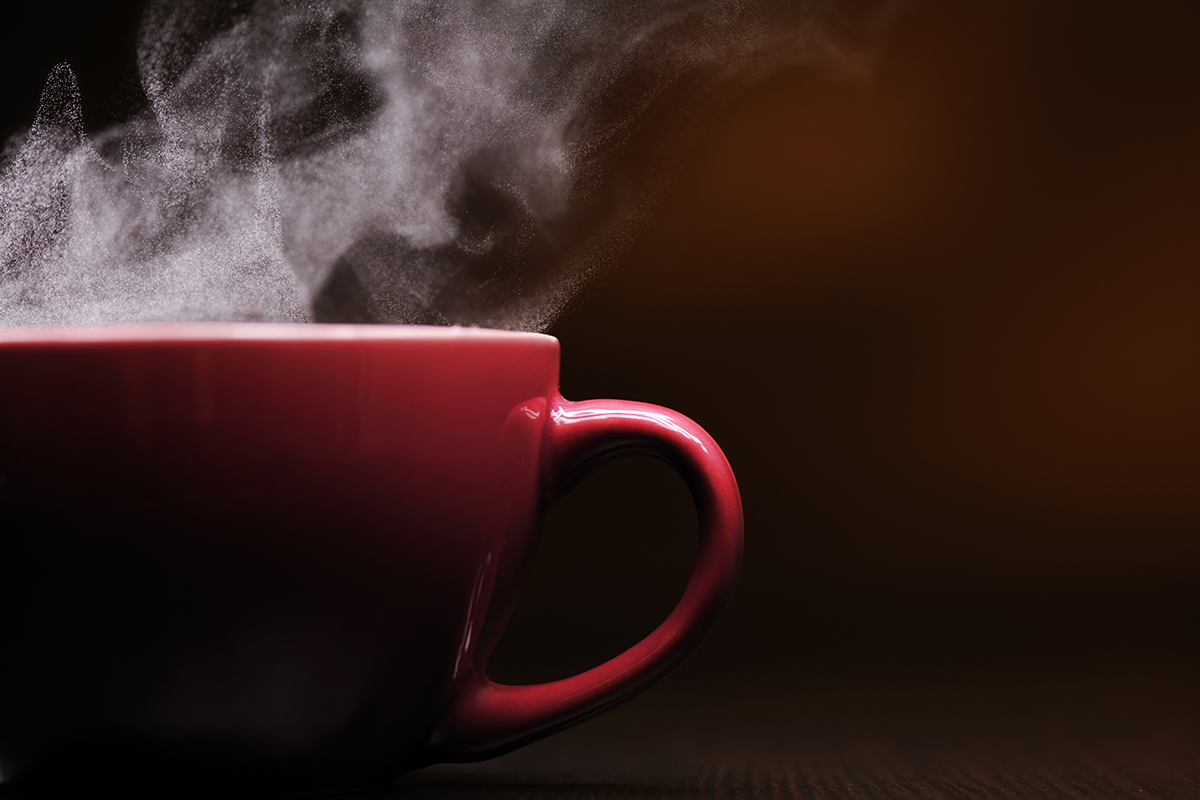Three Reasons You Probably Don’t Need to Give Up Coffee

Coffee photo via istock.com/Moncherie
If you’re the kind of person who orders iced coffee even during frigid Boston winters, you probably breathed a sigh of relief yesterday.
That’s because a study published in The Lancet Oncology found a link between very hot beverages and esophageal cancer formation, prompting the World Health Organization (WHO)—whose International Agency for Research on Cancer (IARC) conducted the study—to deem scorching drinks “probably carcinogenic.” Cue people nationwide blowing feverishly on their morning tea or coffee.
The study is alarming, to be sure—but it’s not necessarily a reason to stop enjoying a steaming cup in the morning. Here’s why:
1. The study focused on very hot beverages.
Specifically, the research found a link between esophageal cancer and drinks warmed to 149 degrees Fahrenheit or hotter. “While the precise mechanism is unclear, it is possible that the repeat trauma from the hot beverages may promote the creation of cancer,” explains Theodore Hong, director of Gastrointestinal Services and a radiation oncologist at the Massachusetts General Hospital Cancer Center. (Hong was not involved in the research.)
While many establishments do serve drinks hotter than 149 degrees, simply letting your mate or latte cool for a while (or ordering iced drinks) may mitigate some of the risk. That may actually be a good thing, since one study found that the optimal temperature for hot coffee is 136 degrees.
2. The research is, by and large, good news for coffee drinkers.
The study may be a wake-up call for those who order drinks extra hot, but it’s not a condemnation of coffee on the whole. In fact, the study specified that there’s not enough research to call coffee cancer-causing, a downgrade from a 1991 IARC assessment that called it “possibly carcinogenic.”
“In the new study, the IARC was able to use new accumulated evidence of higher quality that better controlled for confounding factors such as tobacco or alcohol use, which can be associated with drinking coffee,” Hong explains. “[It] found, in fact, that coffee not only did not seem to increase the risk of cancer, but may be protective for some cancers, such as uterine and liver cancer.”
More bonus points for coffee: A 2015 study from Dana-Farber Cancer Institute found that drinking coffee may improve colon cancer treatment and survival, and a 2015 study from the Harvard T.H. Chan School of Public Health found that coffee consumption may help you live longer.
3. The risk isn’t huge—relatively speaking.
Otis Brawley, chief medical and scientific officer at the American Cancer Society, told Time that any threat coming from consuming hot beverages pales in comparison to behaviors like smoking or drinking alcohol. “I would say anybody who drinks alcohol shouldn’t even worry about this, because alcohol is far more of a cancer-causer than coffee or hot drinks,” he said. “Anybody who smokes cigarettes also shouldn’t worry about this, because cigarettes are a far greater cause of cancer than alcohol.” In short, your morning beverage shouldn’t be your chief concern.
Mass General’s Hong also offers a level-headed assessment of the findings. “In summary, it appears that drinking coffee is safe,” he says, “but it is reasonable to avoid very hot beverages.”


